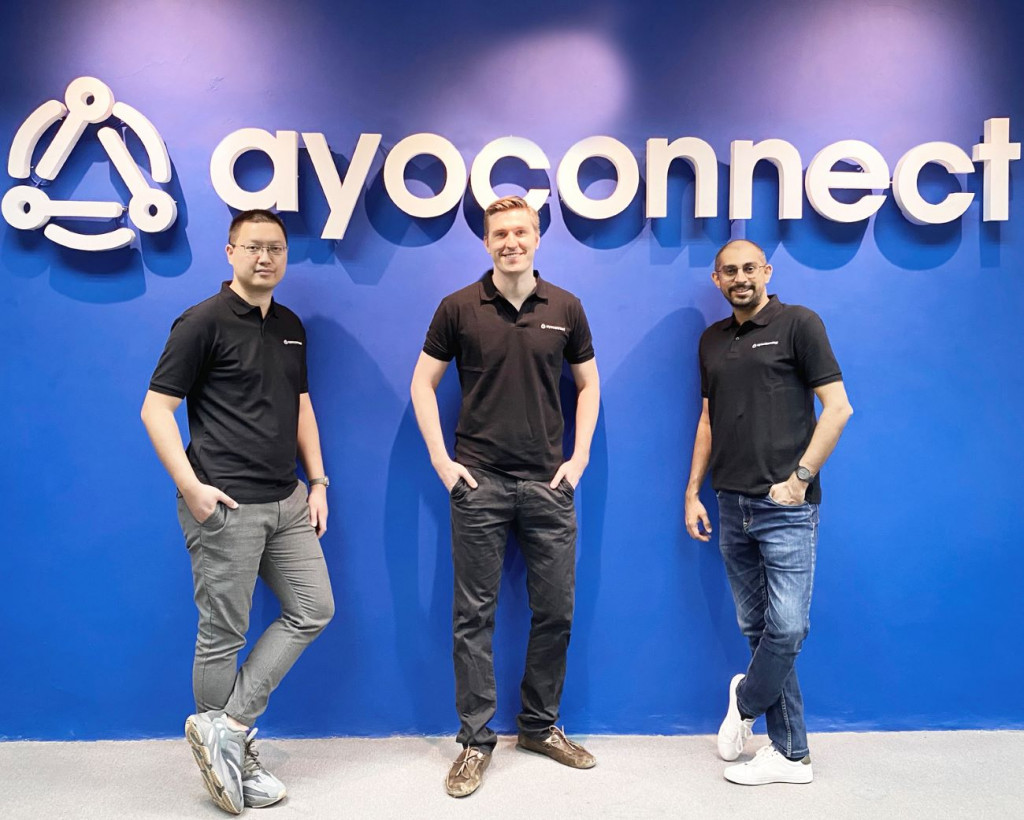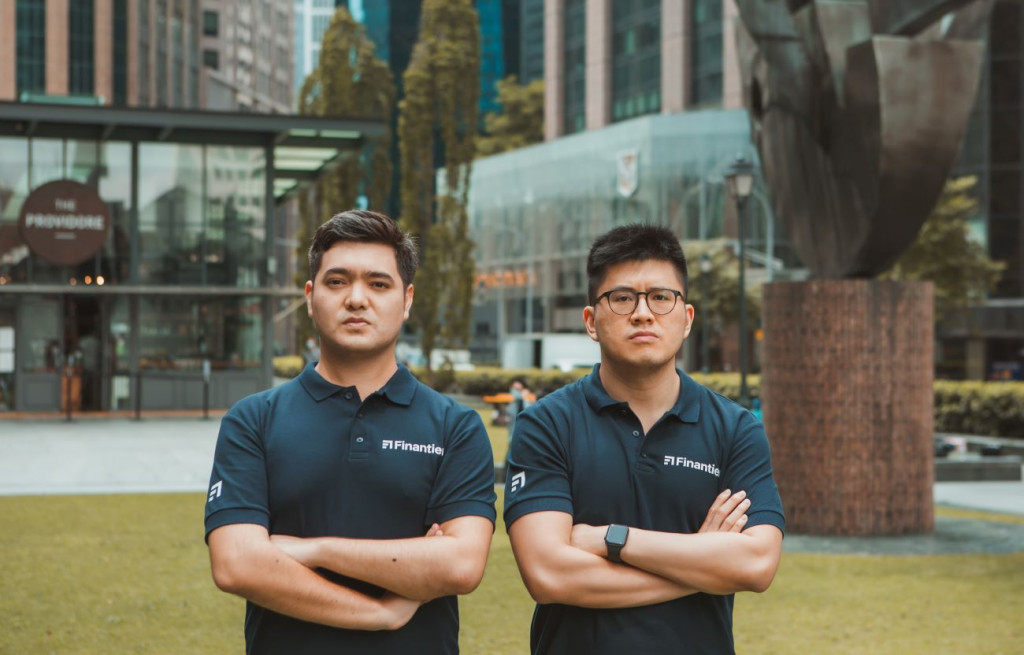Discovering Various Concepts of "Open Finance" in The Digital World
Exploring products and business models of AyoConnect, Brankas and Finantier
Innovation and problems are two related things. As in the world of fintech, especially in developing countries like Indonesia with low bank account ownership, is a firm land to innovate various financial products.
There are new terms emerged, such as open banking, open finance, or banking as a service (BaaS), all of which actually take advantage of the open APIs targeting various sectors. In clarifying this term, DailySocial asks industry players involved in this sector to interpret the views of the two terms. There are Brankas, Finantier, and AyoConnect.
In terms of Finantier, open banking becomes one of the building blocks, but not the only one in the world of open finance. Meanwhile, open finance has a bigger aspect than open banking. On the other hand, open banking is likely centered around bank accounts. Despite this fact, there are still many underbanked people in Indonesia.
“Some companies have tried to do open banking but this only serves 30% of Indonesians who have access to a bank account. What about the other 70%? Although open banking can function in other countries, here [Indonesia] is different,” Finantier's Co-Founder and CEO Diego Rojas said.
Meanwhile, AyoConnect says open API is similar to open banking because it allows interlink and interconnection between multiple options via one API. This condition has the potential to significantly accelerate the integration process between parties, therefore, to reach customers faster.
"The difference is that open banking is initiated by the bank for its third party, while our API is initiated by ourselves which allows interconnection between billing providers and channel partners," AyoConnect's Co-Founder and COO Chiragh Kirpalani said.
Also, Brankas sees the easiest way to differentiate is to place open banking as a model or philosophy that supports the movement of people and companies to get more access to payments and account information, with the owner's consent. Meanwhile, open API is a necessary tool to activate this philosophy.
"Where the company can connect with it, to make things possible, for instance, top-up on the e-wallet [platform] using your bank credentials in real-time," Brankas' Co-Founder and CEO Todd Schweitzer said.
Finantier, AyoConnect, and Brankas are taking advantage of the API's remarkable works in carrying out their respective missions. In fact, they want to simulate existing financial services with APIs, therefore, end consumers can experience the benefits.
Various innovations
AyoConnect positioned itself as an open bill network, connecting billing companies, consumer platforms, and aggregators through one open network accessible via centralized API, the AyoConnect API. As a result, billing companies - such as telecommunications companies, apartment managers, educational institutions, insurance, and others - can expand their payment points quickly and easily.
On the other hand, companies with direct contact with customers, such as e-commerce, banks, retail stores, to other fintech applications, can provide their customers with access to 3 thousand billing products from 25 categories for their customers.
Chiragh explains that all these solutions exist because the company sees itself as a provider. Bill payment has become a mandatory feature offered by consumer-related platforms to maintain retention. If you build this all yourself, the margin that comes from the transaction is actually very small, and even tends to be unprofitable.

“Our value proposition to partners is to run bill payments and digital goods as an end-to-end profitable category. Our technology provides the infrastructure that helps clients grow faster while focusing on the core business at the same time. "
Meanwhile, Brankas saw the wide range of opportunities offered by open finance in Indonesia and Southeast Asia. Schweitzer and his partner, Kenneth Shaw, founded Brankas in 2016 with the vision of making modern financial services available to everyone.
"By helping banks prepare new technologies, helping online businesses connect easily to banks, we can create new product categories in the financial services industry."
Brankas solutions include providing open finance for financial service providers (banks, lenders, e-wallets) who want to offer API-based products and online businesses or fintech companies who want to connect with banks.
Next, partner with banks to build and manage their open finance infrastructure, produce APIs for real-time payments, identity, account opening, and more; provides an aggregation API that allows online businesses to connect in real-time to multiple banks and embed financial services into their own products. There are several API aggregation products, account mutations, direct transfers, payment links, and disbursements.
Schweitzer calls all of these product initiatives based on the results of identifying problems faced by customers and creating products to solve problems with better financial infrastructure. He provides an example, one of the creative innovations is about opening an online account.
Online account opening by companies is actually in great demand during a pandemic due to the reduced activity of people visiting branch offices. The company partnered with a campus organization to streamline the process of creating accounts with Brankas' bank partners and accelerate the process from weeks to less than 48 hours.
Meanwhile, Finantier focuses on developing open finance services for consumers and businesses to get financial services in improving their financial well-being. They do this by providing valuable financial information about consumers and businesses to financial institutions and fintech in the form of e-KYC, enriched financial data, and others.
Using the information, financial institutions and fintechs can identify customers, assess their financial capabilities, and the form it takes, to offer a variety of financial products, not limited to loans and insurance. Companies can also speed up time-to-market and cut costs in developing custom-designed digital solutions.
“Companies can have a good overview of their customers' financial health, and offer tailored services for each user. For example, with the information we provide, fintech lending can provide more competitive loan interest to customers," Diego explained.
The open finance ecosystem is important because the raw data collected by each institution is different. However, when the data processed, it will be very useful, but the investment in this area is quite large and takes time.
“The problem is that financial information is difficult to access. Even if someone has access, how do you make sense of the data? The first problem is that there is actually a lot of financial information available, but it takes a lot of effort to get it. This is a difficult problem that we are determined to solve."
Solid B2B
The presence of API players, like the three companies above, fully targets companies as users, not retail consumers. Chiragh says the company charges partners a fair fee because they trust AyoConnect to handle bill payment features to keep partners seamless, overhead cost minimal, and save their money overall.
Some of these partners, including DANA, JD.id, Bukalapak, Pegadaian, Indomaret, Home Credit, telco, Indosat GIG, Bank Mandiri, and many more. "We, first of all, make sure that our partners' businesses grow and our incentives align with each other."
In terms of Brankas, all users are companies from financial institutions and third-party service providers. Brankas operates two business models by looking from the supply and demand side.
Schweitzer explained that on the supply side, the company is building an open banking infrastructure, partnering with financial institutions to open their financial products and services in the form of APIs. The API can connect with third parties from partners.
Since all financial institutions have different infrastructure and different implementations for each bank, this business is monetized per project. "We usually work with banks to understand their requirements, technical infrastructure, and requirements to deliver contracts that make sense to consumers."
In terms of demand, Brankas provides services for startups, e-commerce companies, fintech, and others by providing aggregate APIs for payment-related and all data-related uses. For example, Brankas customers in the Philippines can make fund transfers using the open banking concept through end-user approval and make peer-to-peer funds transfers on third-party applications.
The API aggregate helps partners no longer have to connect to several banks through several open APIs using a bit of a standard. “Through Brankas, they can connect to a single API giving access to all financial services, which means less overhead in maintaining these connections. Therefore, in this model, we charge our customers based on successful transactions, for example paying for services per its function."
Finantier is quite similar. They partner with fintech companies and financial institutions. Diego designs win-win solutions for consumers and businesses, therefore, they can get access to financial services. Partners only have to pay-per-use for each API call they make.
Moreover, partners will benefit from Finantier's API that provides them valuable financial information, therefore, partners can improve their performance. “When our partners work better, so do we. We are currently working with 40+ partners and are rapidly scaling up our team to meet the increasing demand. "
Finantier's COO Edwin Kusuma added that the majority of corporate partners come from banking, p2p lending, multi-finance, and wealth management, and others. Creating an API is not an easy job, especially for financial companies with experts in their respective fields. As a result, in-house API development is expensive.
Even for fintech lending companies. Even though they are tech companies, they need help from companies like Finantier to solve the problem. “For lending companies, their main business is lending, therefore, to invest in technology and build a good technology team, it doesn't make sense to them. Also, AFPI itself as an association encourages cooperation between p2p companies and other companies," Edwin said.

The future of open banking and open finance
Schweitzer believes Indonesia is in the process of entering a new era of open banking as banks are now competing to launch products and partner with fintech companies. For Brankas, this momentum was very beneficial because the more lenders who came, the more financial insights that could be obtained to be channeled back.
"The pandemic has forced many banks to look for alternative business models, to switch to digital solutions that help MSMEs. Bank Indonesia recently announced new regulations and permits that will take effect in July 2021 which will help support businesses that wish to provide open banking solutions, whether related to bank account data or payment initiation."
The implication will be more of real uses for open banking and will make the API more familiar, widely available, and widely accessible. In the end, people can manage bank accounts faster, pay smoothly, and share financial data to get access to credit, which was quite difficult.
In response to that, Brankas plans to launch new products in the coming months for fintech and other startups looking to partner with banking services via APIs to empower their users. Then, work with more banks to open their core systems through open APIs, therefore, more companies can connect directly with banks and facilitate the transfer of funds and data.
"Eventually, looking for ways to connect Indonesia to the regional fintech ecosystem through open banking. Part of this will require Brankas to slide into new markets, something we'll see further in 2021."
Diego's view was not much different. He sees API usage increasing exponentially in Indonesia, along with the number of technology companies. This momentum is getting to its peak as more valuable information about consumers and businesses cannot be used before.
“With our API, we help create new business models that didn't exist before. More companies will use our solutions and enter the financial ecosystem, providing new and innovative products. Ultimately, this is good because consumers and businesses are benefiting from improved access to finance and better ways to improve their financial well-being."
Last, AyoConnect will continue to expand its open bill network ecosystem with larger and highly fragmented bill payment companies. "That's where we will direct our focus for now. Therefore, we will remain dedicated to expanding our network and developing solutions for our partners,” Chiragh concluded.
– Original article is in Indonesian, translated by Kristin Siagian
Sign up for our
newsletter
 Premium
Premium


